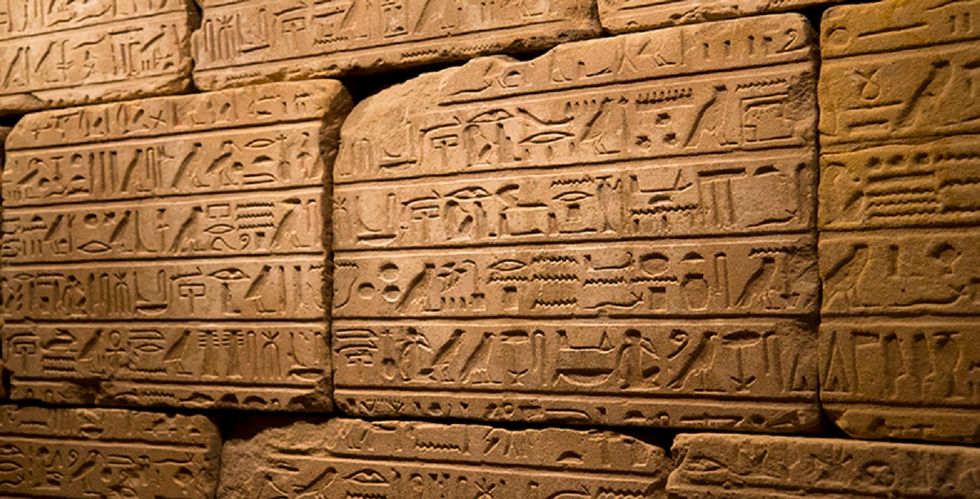The history and study of mathematics is not something most people think about. They are told to solve this problem using this method and they do so without wondering where that method came from or how we learned to solve in that way. The history of mathematics is a vast world of knowledge, but it begins with the Egyptians and the Babylonians.
Jose Garcia wonders how the ideas presented in each culture in regards to mathematics vary so much. In an article for Metascience Magazine, he states, “...researchers have usually considered Egyptian and Babylonian mathematics as completely independent mathematical traditions, which – in the opinion of this reviewer – creates a puzzling situation: how is it possible that two civilisations so close in time and space have generated such different and unrelated mathematics?” Below is a detailed explanation of the history of both cultures in regards to mathematical concepts and how they impact math studies today.
Egyptian mathematics is based on “the development of a decimal, non-positional number system”, or so Garcia believes, which has its limitations. The numbers were represented by symbols but lacked a set place value system like that which we have today. J. Johnson wrote in Salem Press Encyclopedia Of Science that “Though able to represent large values of numbers with these symbols, the Egyptians’ lack of place values deterred their ability to calculate proficiently using algorithms.”
In this way, the Egyptians were slightly behind the Babylonians with the development of their mathematical concepts. Johnson also states the Egyptians are best known for being the “one ancient culture that came closest to determining the true length of Earth’s year with mathematics.” On another note, the Egyptians were able to complete some geometry. Johnson informs us that, “Historians agree that the Egyptians knew key formulas for computing the area of a triangle, the volume of a cylinder, some curvilinear areas, and even the volume of the frustum of a square-based pyramid.
These formulas were apparently put to great use by the Egyptians in their accurate construction of the pyramids, feats that required a solid understanding of ratios, proportions, dihedral angles, and even astronomy.” Overall, the Egyptians were able to develop and use a mathematical structure that allowed them to better their daily lives including “measuring time, drawing straight lines, measuring and recording the level of the Nile floodings, calculating land areas, and managing money and taxes.” per Johnson’s research.
Babylonian mathematics is based on “a sexagesimal, positional number system”, or so Garcia believes, which was a bit more advanced than that of the Egyptians. Differing from the Egyptians again, the Babylonians had a place value system based on powers of sixty. Johnson says, “In their solution of special types of algebraic equations, the Babylonians made extensive use of their tables of the sums of squares and cubes, especially if the equation was of the third or fourth degree.
Some of their solutions to algebraic problems were quite sophisticated.” This means the Babylonians could, in fact, solve more difficult algebraic problems of which the Egyptians had no knowledge of. Per Johnson’s research, “Evidence suggests that they knew a precursor of the Pythagorean formula.”
Unlike the Egyptians who had no knowledge of the theorem, the Babylonians were able to calculate using such a formula. Most notably, Johnson cites, “Mathematics historians credit the Babylonians with the division of a circle into 360 degrees.” This tells us that the Babylonians were on their way to understanding concepts the Egyptians did not.
And Johnson notes, “For the most part, Babylonian mathematics was utilitarian, being tied to solving practical problems.” Overall, the Babylonians were able to use their created mathematical concepts in their everyday lives in the same way as the Egyptians.
In conclusion, both the Egyptians and the Babylonians are important to the history of mathematics. They are the precursors to all the theorems and formulas we still use today. Dirk Struik says it best in Monthly Review: An Independent Socialist Magazine.
He believes “In our customary way of describing the history of mathematics, we often tend to consider these ancient mathematics as the "childhood" of our own science. And indeed, our own school and academic mathematics grew out of them.”
What Struik is saying is that although our mathematics came from other previous knowledge and cultures, we should not diminish the struggles of these people by not teaching the next generation's how mathematics came to be. History of any kind is vitally important to the success in the future.

















